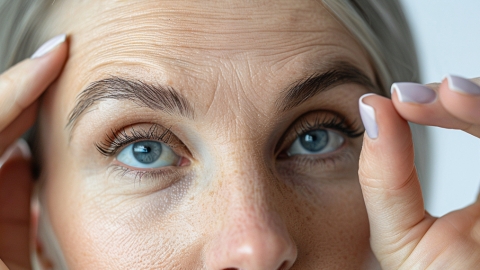What are the disadvantages of needle-free nebulization for wrinkle removal?
Generally, the disadvantages of needle-free nebulization for wrinkle removal include skin pigmentation, eye discomfort, facial deformity, uneven skin texture, and short duration of effect. A detailed analysis is as follows:

1. Pigmentation
Medications, water, and other substances used during needle-free nebulization may irritate local tissues, triggering an inflammatory response that promotes melanin synthesis, leading to skin pigmentation. Long-term presence of pigmentation may cause uneven skin tone and, in severe cases, melasma, affecting skin aesthetics.
2. Eye Discomfort
The skin around the eyes is extremely delicate. Great care must be taken when using needle-free nebulization for wrinkle removal around the eyes. Improper operation may cause excessive absorption of nutrients or irritation, resulting in eye discomfort symptoms such as pain, swelling, and impaired vision.
3. Facial Deformity
Needle-free nebulization for wrinkle removal is performed via a point-to-point penetration method. If the treatment intensity is improperly controlled during the procedure, it may damage facial nerves or cause uneven wrinkle reduction, leading to facial deformity. This may manifest as changes in facial contour or deepening of wrinkles, affecting appearance.
4. Uneven Skin Texture
During needle-free nebulization, if overly aggressive fillers or other exogenous substances are used, skin tissue may be damaged, resulting in depressions or elevations. Such conditions usually require surgical or other interventions to restore the smoothness of the skin surface.
5. Short Duration of Effect
The effect of needle-free nebulization for wrinkle removal is relatively short, typically lasting only one to two months. Repeated treatments are required to maintain the results, which increases treatment costs and may place a burden on the skin.
Ultraviolet radiation is one of the primary causes of skin aging and wrinkle formation. Regardless of whether it is sunny or cloudy, sunscreen should be applied daily, and direct sun exposure should be avoided around noon.




